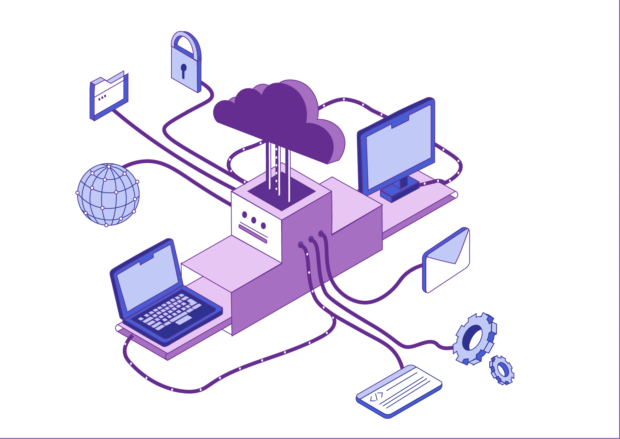Imagine your taps running dry. No water to drink, cook, or bathe. How would your daily life change? What would happen to your local schools, businesses, and communities?
Cape Town’s 4.6 million residents came all too close to this reality. In 2017-2018, dam levels plummeted to unprecedented levels, after three consecutive years of drought. Drought, and the resulting water scarcity, is just one of the many challenges that are becoming more frequent and severe due to climate change. Yet, Cape Town was perhaps the first city to face the possibility of a complete water shutdown – which, at the time, would happen on at time referred to as “Day Zero.”.
Everyone living in South Africa’s second-largest city had to adapt, quickly, to avert the worst-case scenario. People were left with little choice but to reduce water usage to a bare minimum and ask tourists to do the same. The city government relied on engineering, communications, and, crucially, data-driven decision making to navigate the day-to-day crisis while creating sustainable solutions to avoid future droughts.
The city’s Water Dashboard played a crucial role in this response. The public-facing platform transformed the city’s complex data into actionable insights, continuously projecting the Day Zero date by aggregating different data sets including weather forecasts, dam levels, infrastructure improvements, and public water consumption. This helped the government to see the impact of their efforts and infrastructure investments, while also driving public behavior change: as people consumed less water, Day Zero became farther away. And, as the crisis subsided, the aggregated data helped officials to understand what went wrong, and how they could better prepare for the future.
While Cape Town avoided the worst-case scenario, 25% of the world’s population now live in countries with extremely high water stress. Many of these communities are struggling to prevent and adapt to water scarcity on top of other climate-related challenges including fires and floods. Local governments worldwide are grappling with challenges of a magnitude and complexity beyond comprehension. These challenges are further exacerbated by the fact that many of the communities and cities on the frontlines of these disasters have far fewer resources than Cape Town.
For these frontline cities and communities, data-driven decision-making can be a crucial tool for strengthening climate resilience. Yet, a critical market failure persists. Much of the climate-relevant data, such as the various data sources that fed into the Water Dashboard, remains inaccessible to the local actors who need it most.
Recognizing this market failure, we sought to understand what it will take to scale innovations in data sharing that make climate-relevant data more accessible and useful for frontline decision makers. To do so, we launched the Joint Learning Network on Unlocking Data for Climate Action (Climate Data JLN) at COP28 under the multistakeholder Green Digital Action, with a commitment to deliver comprehensive findings by COP29.
This collective learning effort uncovered key insights to ensure that data sharing empowers frontline communities.
Through a series of roundtable discussions, the multi-disciplinary Climate Data JLN identified several challenges to data-driven decision-making: data quality concerns, lack of trust in the data sharing mechanisms available, data owners’ desire for a return on investment for data collection, and insufficient human and technical capacity at the local level. In response, we dove into four innovative data sharing models:
- Open data: A subset of digital public goods, open data makes freely accessible the use and adaptation of the data, methodologies, and often the code underlying the data platform itself.
- Data trusts: The only legal model of the four models, data trusts are designed to responsibly manage and govern data assets on behalf of members.
- Open transaction networks: The most decentralized of the four models, an open transaction network is a system where anyone is free to join, with no centralized controlling authority, allowing for a dynamic exchange of information and resources.
- Data spaces: The most nascent model, data spaces enable the reliable exchange of data, all while retaining sovereignty and ensuring trust and security under a set of mutually agreed rules.
We encourage you to read each of these focused Spotlight papers (they’re just 10 pages each!) and to explore the interactive tool to see how each model is designed to address different data sharing challenges.
Our research revealed several crucial insights:
Different models work for different needs. The appropriate data sharing model for a given use case depends on factors such as the type of data, data owners’ privacy requirements, and the intended data users. Where data requires more careful governance and privacy, centralized models like data trusts and data spaces are likely more appropriate. Where widespread participation is essential, and privacy concerns are lower, decentralized models like open transaction networks and open data models offer greater flexibility and access.
Governance is the key challenge in all models. The barriers to data sharing are not primarily technical. Greater time and effort are required to establish governance models that are fit-for-purpose, foster trust, and enable data sharing and use across borders and sectors.
Innovative financing is needed. The entities driving these data sharing innovations are struggling to attract the financing they require, particularly as they rely on hybrid financing models that do not neatly fall into typical categories of private, public, and not-for-profit. The Data Empowerment Fund demonstrated demand for catalytic capital to scale data sharing innovations.
Intermediaries are needed to drive data for decision-making. For frontline communities to benefit from the data unlocked through these different data sharing innovations, they require support from intermediaries (entrepreneurs and others) who turn data into actionable and accessible information, thereby minimizing the need for high levels of technical or human resource capacity.
Everyone has a role to play in scaling trusted data sharing to accelerate climate action.
We leave you, for now, with our calls to action for each set of actors that can move this urgent agenda forward. Stay tuned for the next phase of the Climate Data JLN, which will kick-off in early 2025.
If you are a frontline government or other user of data, such as a community organization or municipality in a low-resourced environment, you can:
- Where possible, fully leverage the support of networks such as RIL and C40 Cities Alliance to access peer learning and other capacity strengthening support.
- Workshop which data sets are relevant to your climate action or resiliency plans, where this data might exist, and how you might access it. Some data sets may end up being easier to access than expected; for other data, identifying obstacles can help you to find the right partners that are developing innovative ways to improve access.
If you are a data owner, such as private sector company, government entity, development organization, or academic institution, you can:
- Understand what data you have that may be relevant to climate action and actively seek out opportunities to share this data, at scale, particularly with frontline governments and communities.
- If return on investment is necessary to incentivize your entity to share relevant data, consider how data aggregation, such as through a data space, can help to lower the cost by providing access to a larger number of buyers. Furthermore, you can consider tiered-pricing structures that help communities in low-resourced environments access this data at a lower cost than those with a higher ability to pay.
If you are a data aggregator, or intermediary, who provides the data sharing infrastructure, technology, and/or trusts to hold and manage data, you can:
- Budget and plan for staff and operational focus on governance and community building, to the same or even a greater extent than technology development and testing.
- Make it easy for local innovators to access the data you’ve unlocked, so that they can create useful and accessible data-driven services that solve tangible problems for people in their communities.
If you are a funder, including a bilateral donor and or foundation who has the resources to support the design, implementation, and governance of new data sharing models, you can:
- Pool funding into a climate-orientated data-sharing innovation fund that provides patient capital (in the form of grants or returnable grants) to aggregators adopting and scaling promising models for governance, financing, and sharing of climate-relevant data.
- Support public sector partners, both national and sub-national, to build their capacity to access and use relevant data to improve the implementation of climate action and resiliency plans in ways that tangibly improve the ability of communities to cope with weather-related changes. This includes technical training, cost-sharing of data access fees, and peer learning opportunities.





